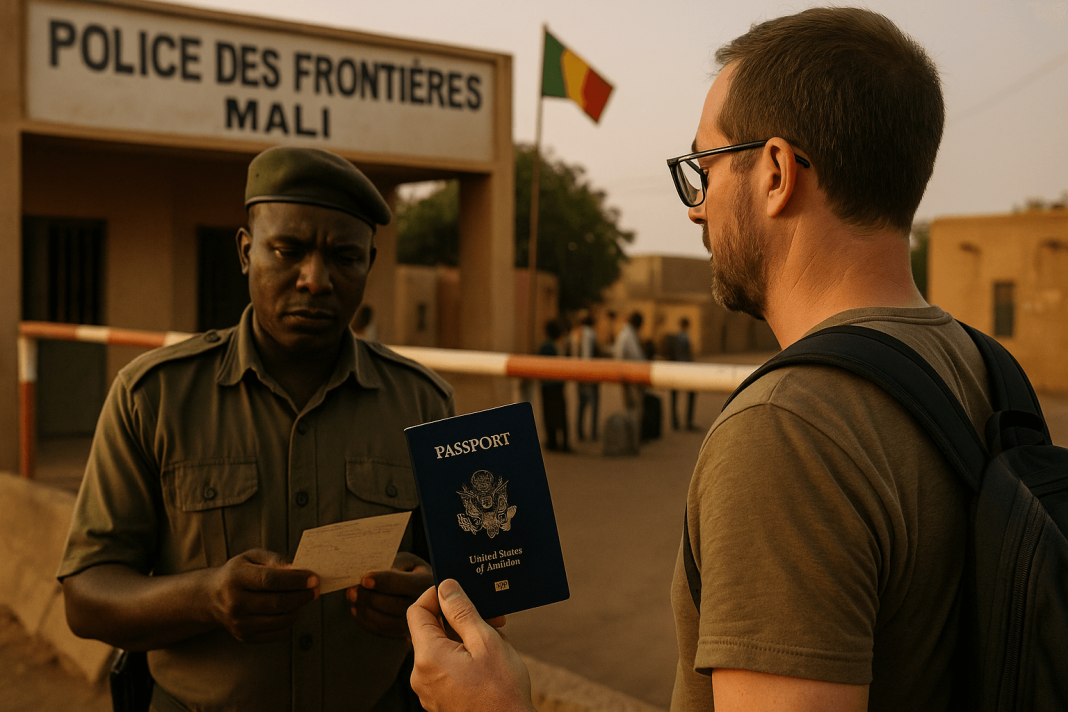Mali responded to the U.S. Department of State’s new visa program by saying it will require American tourists or business travelers who wish to enter the country to deposit a maximum amount of $10,000 in cash to secure a visa.
This mirrors restrictions the U.S. Department of State put on Malian nationals with respect to obtaining a B-1/B-2 visa.
This was announced on Oct. 12, 2025 – only 48 hours after the U.S. Department of State introduced its new Visa Bond Pilot Program which requires all Malian nationals wishing to obtain a B-1/B-2 visa to pay a bond of $5,000 to $10,000 when they apply for their visa. The pilot program goes into effect on Oct. 23, 2025.
Tit-for-Tat Diplomatic Move
According to the Malian Ministry of Foreign Affairs and International Cooperation, the measure is based upon the principle of reciprocity, whereby the U.S. national will be subject to the same conditions as are Malian citizens. The Malian government felt the U.S. action undermined the “Agreement on the establishment of a multiple-entry long-term visa,” signed on April 14, 2005, between the two countries.
Details of Both Programs
United States Visa Bond Program
As part of the U.S. Visa Bond Pilot Program, Malians approved for B-1/B-2 visas must post bonds of $5,000 or $10,000 at the time of visa interview. Applicants must also provide a copy of Department of Homeland Security Form I-352 using the Treasury’s Pay.gov platform.
Seven other African countries (including Mauritania, São Tomé and Príncipe, Tanzania, The Gambia, Malawi and Zambia) currently are subject to these requirements, along with Mali.
Mali’s Reciprocal Policy
The Malian visa bond policy went into effect immediately on Oct. 12, 2025 for new applicants. The bond can be returned if the traveler complies with the terms of his/her visa and departs on time.
Deteriorating Diplomatic Relations
Malian-American diplomatic relations have rapidly deteriorated since military coups in 2020 and 2021 that led to the rise of Col. Assimi Goïta.
The U.S. has suspended parts of the military and financial assistance to Mali, placed sanctions on the junta, and has been increasingly vocal about the regime’s growing authoritarianism and closer ties with Russia.
The U.S. Department of State advises against travel to Mali, citing threats from crime, terrorism and kidnapping, and classifying the risk level as a Level 4: Do Not Travel U.S. Department of State.
Context and Broader Impact
The U.S. Visa Bond Pilot Program will run from Aug. 20, 2025 until Aug. 5, 2026, and is intended to target countries that experience high levels of overstay, deficiencies in screening of visa applicants, and/or offer citizenship-by-investment programs without any requirement for residency U.S. Department of StateNAFSA.
The Trump Administration has employed similar visa restrictions to pressure African countries to accept deported individuals, some of whom come from third countries.
Trade between the U.S. and Mali totaled $184 million in 2023 despite deteriorating diplomatic relations.
